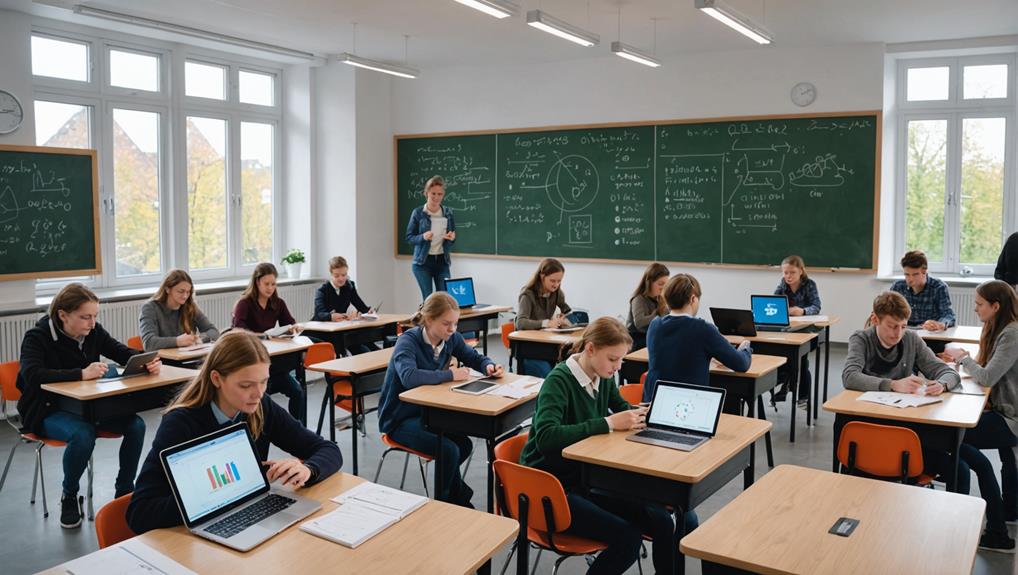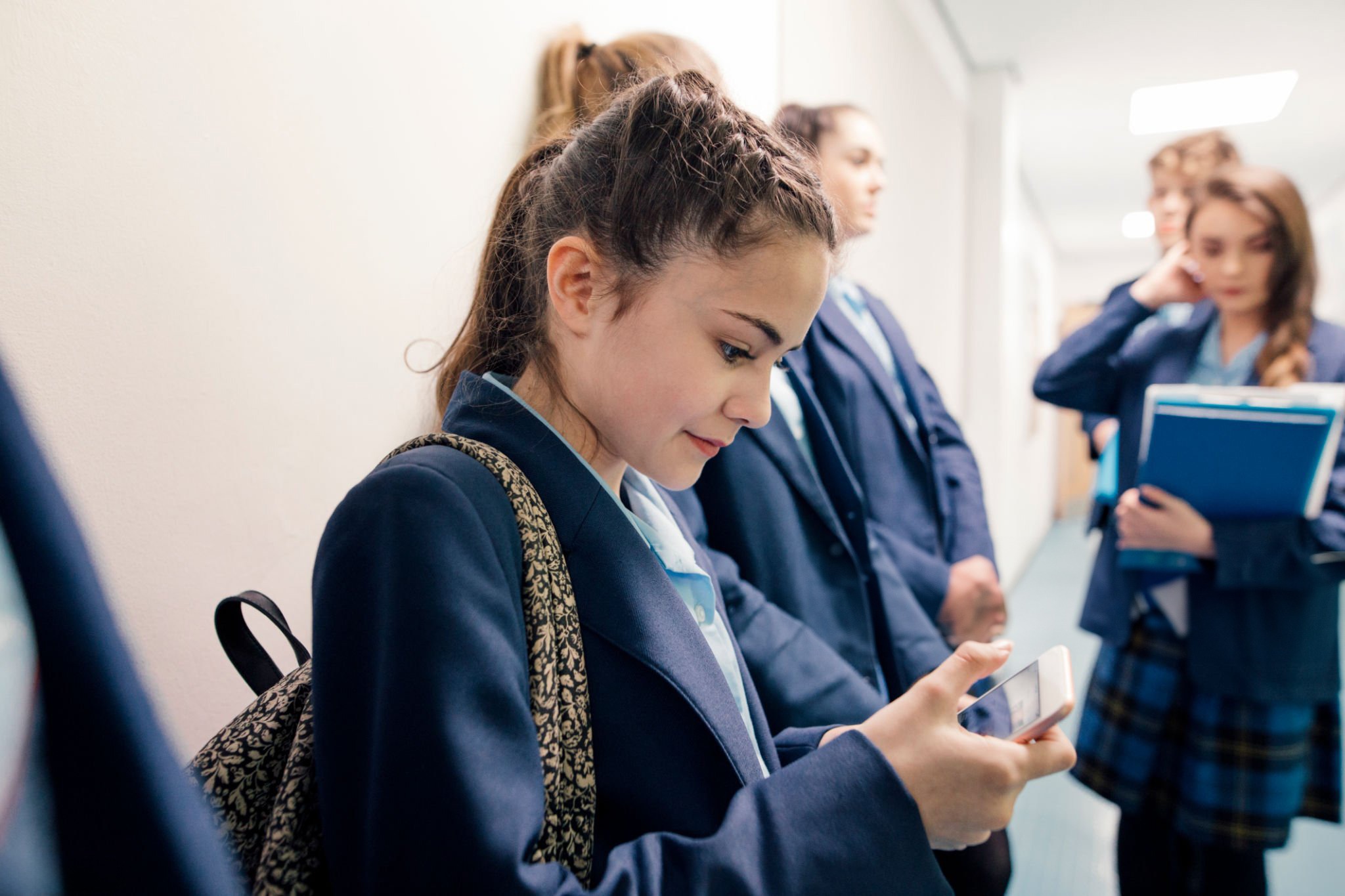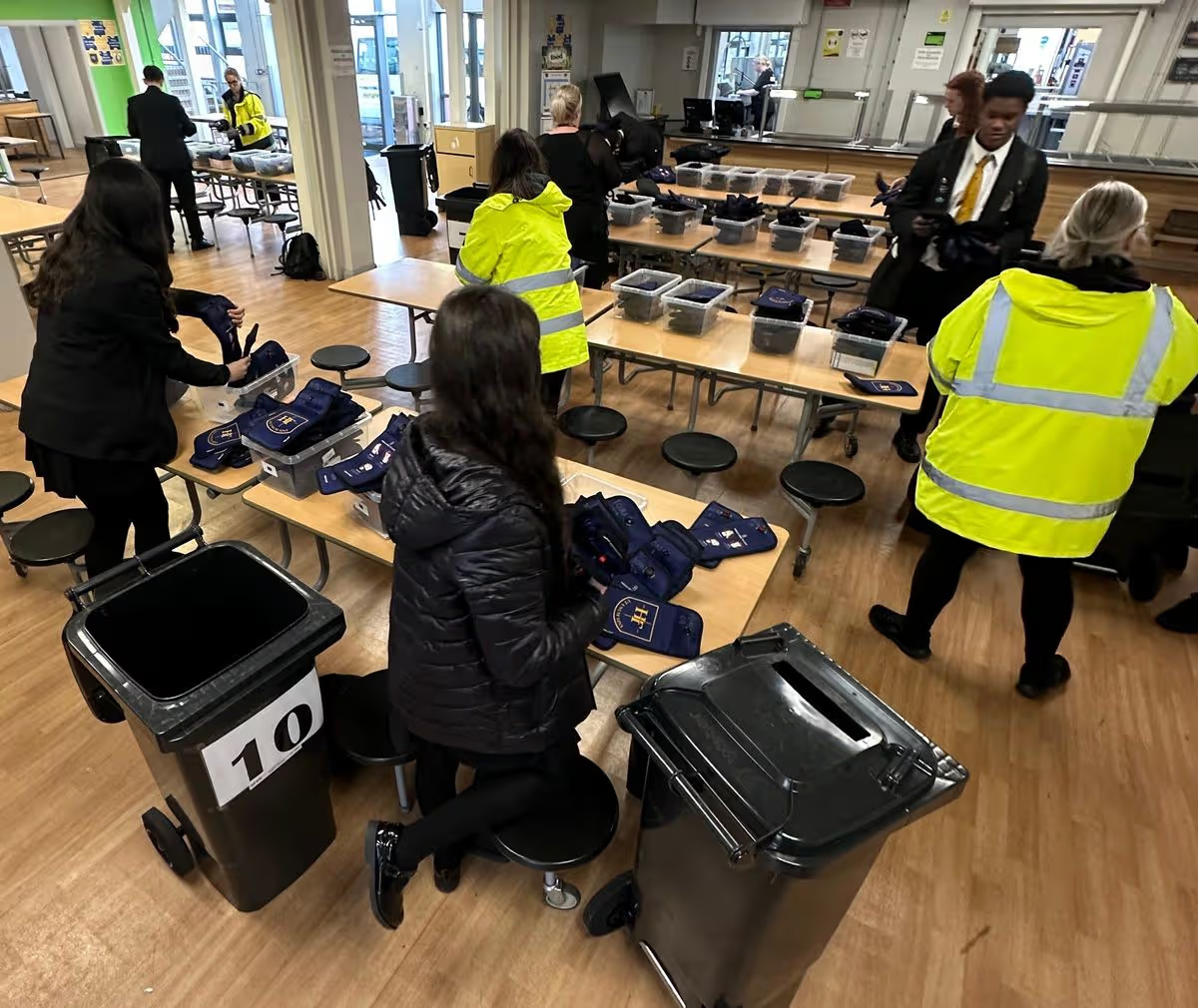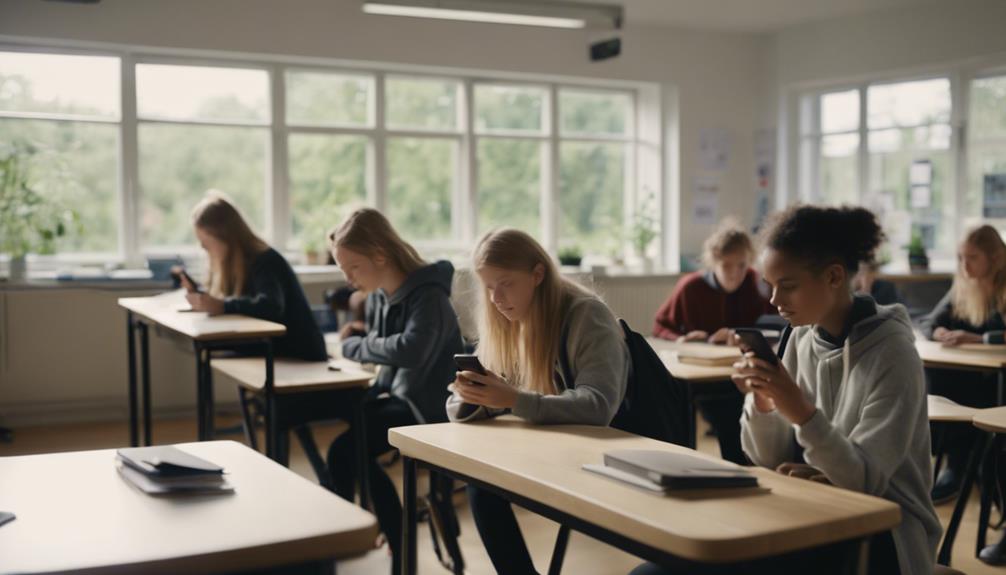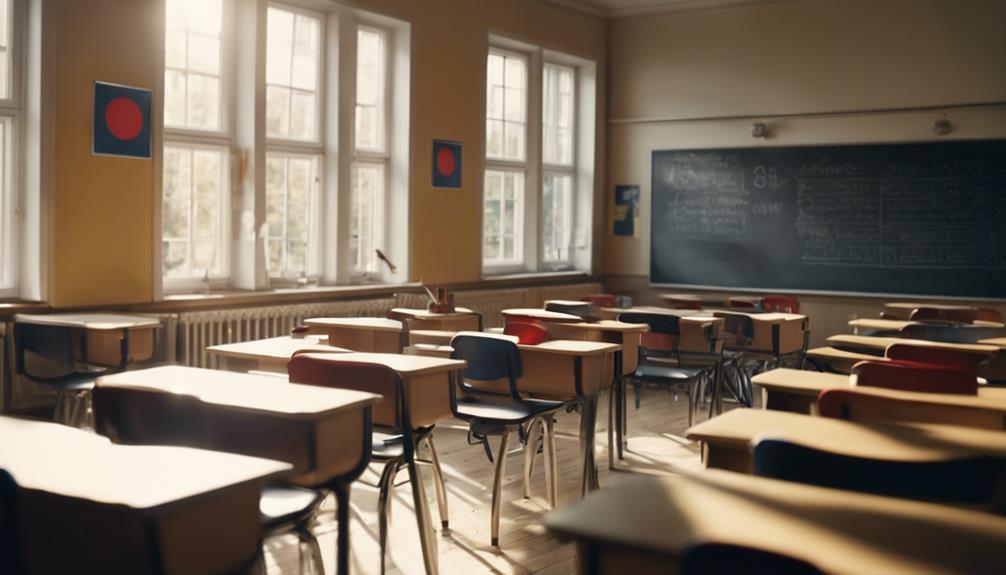Comment l'Allemagne gère l'utilisation des smartphones dans les écoles
La question de l'utilisation des smartphones dans les écoles allemandes continue de susciter le débat, l'État de Bavière mettant en œuvre des interdictions strictes sur cette technologie tandis que des régions comme la Basse-Saxe permettent aux écoles de décider de leurs propres règles.
- La Bavière interdit les smartphones
- La Basse-Saxe permet aux écoles de décider individuellement
- Les écoles germanophones de Belgique interdisent également les téléphones
- Certaines écoles autorisent les téléphones à des fins éducatives
- Pendant ce temps, l'ONU rapporte que 60 pays ont désormais interdit l'utilisation du téléphone dans les écoles
La participation des parents étant essentielle à l’élaboration de ces politiques, Institut des sciences sociales appliquées a mené une enquête pour la Fondation Robert Bosch Stiftung révélant que 76% de parents allemands soutiennent l'interdiction des smartphones afin de réduire les distractions, d’améliorer le développement social et d’atténuer les risques associés à une consommation excessive de médias. Bien que certaines opinions soient partagées concernant ces interdictions dans les écoles secondaires, il existe un consensus sur leur limitation dans l’enseignement primaire.
Cela place les parents et les éducateurs à la croisée des chemins où ils doivent peser les avantages de l'alphabétisation numérique dans l'éducation par rapport au potentiel de distraction et de dépendance, en posant la question suivante : l'Allemagne doit-elle appliquer des mesures à l'échelle nationale comme en Bavière ou continuer à permettre aux écoles de mettre en œuvre leurs propres politiques ?

Des opinions partagées en Allemagne
Bien qu’à première vue les avantages d’une interdiction nationale des téléphones dans les écoles semblent évidents, les arguments des parents, des enseignants et des législateurs sont contradictoires, certains suggérant que la technologie peut être un outil éducatif précieux et que son interdiction risque d’entraver l’alphabétisation numérique.
Malgré ces objections, il est évident que cette interdiction contribuera à apaiser les inquiétudes des parents en favorisant un environnement d'apprentissage plus ciblé qui améliore les bénéfices éducatifs et le développement social approprié. Les smartphones étant une source majeure de distraction et pouvant nuire à la capacité de concentration des élèves, la suppression de ces appareils dans les écoles aidera non seulement les élèves à rester concentrés, mais contribuera également à atténuer les problèmes tels que la cyberintimidation et le partage de contenu non autorisé, créant ainsi un environnement scolaire plus sûr.
Cela souligne les avantages de la mise en œuvre d'une telle politique et ces mesures ont le potentiel d'innover le cadre éducatif de l'ensemble du pays. Il a été démontré que des initiatives similaires ont un impact significatif lorsqu'elles sont mises en œuvre dans des endroits tels que Australie et autres Pays de l'UE qui démontre des recherches fondées sur des preuves pour soutenir la réplication de telles politiques en Allemagne.
Comment les écoles peuvent-elles mettre en œuvre une interdiction du téléphone ?
Bien sûr, ce type d’interdiction présente des complexités, et il est important d’évaluer les nuances de l’éducation moderne dans laquelle la technologie joue un rôle central – dont certaines sont propres aux écoles allemandes.
Certains opposants à l’interdiction soutiennent que donner la priorité à la responsabilité parentale peut rendre l’approche plus collaborative, en garantissant que les écoles et les familles guident les élèves dans une utilisation responsable du téléphone afin d’établir un équilibre technologique approprié.
Il est également à noter que permettre un accès contrôlé aux smartphones peut améliorer l’autonomie des étudiants, leur permettant de prendre des décisions éclairées sur leur comportement numérique et permettant aux enseignants d’intégrer la technologie dans la classe.
Alors que des centaines d'écoles à travers l'Europe mettent en œuvre des interdictions, nos mesures essentielles recommandées incluent :
- Établir des règles claires sur l’utilisation des smartphones
- Impliquer les élèves et les parents dès le début
- Enseigner des compétences pour utiliser les médias numériques en toute sécurité afin d'améliorer l'adhésion
- Envisager une période d’essai
Nous en partageons davantage dans notre article dédié sur Comment mettre en place une interdiction efficace du téléphone dans les écoles. Il existe également des modèles pour modifier la politique de votre école disponibles sur le Institut d'enseignement de Rhénanie-Palatinat, et le ministère de l'Éducation et des Affaires culturelles de l'État bavarois a ont partagé de bonnes pratiques sur leur site Web.
Certains enseignants qui craignent une interdiction totale du téléphone dans leur école en raison d'une confrontation avec les élèves ou de difficultés à faire respecter l'interdiction, trouvent que l'intégration de cette interdiction Casier de téléphone® pochettes verrouillables pour téléphone peut aider à résoudre de nombreux inconvénients liés à l’interdiction en permettant aux utilisateurs de conserver la possession de leur téléphone tout au long de la journée.
Si vous souhaitez créer un environnement sans téléphone avec une solution d'interdiction technologique utilisée par les écoles et les lieux à l'échelle internationale, consultez Comment ils fonctionnent ou entrer en contact pour un devis.
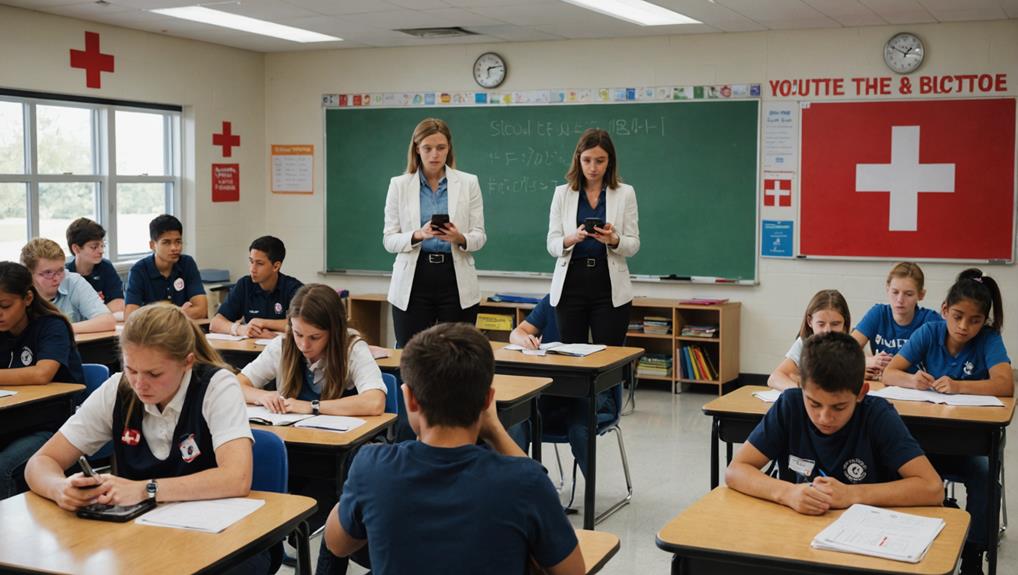
Comment les autres pays abordent-ils l’interdiction des téléphones ?
En fin de compte, la décision d’interdire les smartphones devrait être guidée par des recherches en cours et viser à harmoniser les avantages éducatifs tout en minimisant les distractions. Ce mouvement gagne du terrain dans le monde entier :
La France a désormais mis en place une interdiction complète des téléphones portables dans les écoles primaires et secondaires, visant à améliorer les performances scolaires et à réduire les interruptions.
Alors que Danemark et Italie Ils tendent vers une intégration contrôlée des technologies et une éducation précoce aux médias, mais cette approche met fortement l’accent sur l’implication des parents, les encourageant et s’appuyant sur eux pour réguler l’utilisation en dehors des heures scolaires.
Le Royaume-Uni étudie également diverses mesures, avec des mesures parlementaires qui seront révisées en mars 2025 et des législations plus strictes concernant l'utilisation du téléphone par les enfants à l'horizon.
La Belgique a mis en place des interdictions similaires sur les smartphones, comme le font déjà les écoles francophones de Wallonie et de Bruxelles, et il est proposé que les smartphones soient interdits dans les écoles germanophones de Belgique à partir de septembre 2025.
Dans tous les pays, un point commun est la reconnaissance de l’impact des smartphones sur les résultats scolaires et, même si les méthodes de prévention varient, l’accent reste mis sur la création d’un environnement propice à l’apprentissage, où la technologie sert d’aide plutôt que d’obstacle.
Pour gérer efficacement l’utilisation des smartphones dans les écoles allemandes, la mise en œuvre de Pochettes Phone Locker® présente une solution prometteuse. En proposant une approche structurée de la gestion du téléphone, elle permet aux enseignants, aux parents et aux élèves de profiter pleinement des avantages d'un environnement éducatif sans téléphone.

Questions fréquemment posées (FAQ)
Comment l’interdiction des smartphones affecte-t-elle la communication entre élèves et enseignants ?
Une étude a révélé que 801 enseignants sur 3 ont été moins distraits en classe après l’interdiction. Ces changements peuvent avoir un impact positif sur les résultats scolaires et améliorer les interactions sociales entre les élèves.
Existe-t-il des exceptions à l’interdiction des smartphones dans les situations d’urgence ?
Les exceptions à l’interdiction des smartphones impliquent généralement le consentement des parents et la discrétion de l’enseignant, en adhérant aux protocoles d’urgence établis. Les politiques scolaires donnent la priorité à la sécurité des élèves, en garantissant que les smartphones peuvent être utilisés lorsque cela est nécessaire pour maintenir un environnement d’apprentissage sécurisé.
Quelles alternatives aux smartphones sont proposées à des fins éducatives ?
L’intégration de tablettes, de tableaux blancs interactifs, de plateformes d’apprentissage en ligne, de manuels numériques et de simulations de réalité virtuelle sont des alternatives suggérées, améliorant les expériences éducatives grâce à une technologie innovante tout en maintenant la concentration et en réduisant les distractions en classe.
Comment les politiques relatives aux smartphones répondent-elles aux besoins des élèves ayant des besoins spéciaux ?
Les politiques relatives aux téléphones intelligents pour les élèves ayant des besoins spéciaux mettent l'accent sur les aménagements inclusifs, les considérations d'accessibilité et les plans de soutien individualisés. Elles intègrent des options de technologie d'assistance et des ressources de soutien appropriées pour garantir un accès équitable aux opportunités éducatives.
Existe-t-il des études sur les effets psychologiques de l’interdiction des smartphones sur les étudiants ?
Une étude récente a révélé que les étudiants ont connu de meilleurs résultats scolaires et de meilleures interactions sociales après l’interdiction des smartphones, améliorant notamment leur santé mentale, leur capacité d’attention, leur mémoire de travail et leur gestion du comportement, tant dans les environnements éducatifs qu’en dehors.


